This article was co-authored by Alex Dimitriu, MD and by wikiHow staff writer, Janice Tieperman. Alex Dimitriu, MD is the Owner of Menlo Park Psychiatry and Sleep Medicine, a clinic based in the San Francisco Bay Area with expertise in psychiatry, sleep, and transformational therapy. Alex earned his Doctor of Medicine from Stony Brook University in 2005 and graduated from the Stanford University School of Medicine's Sleep Medicine Residency Program in 2010. Professionally, Alex has dual board certification in psychiatry and sleep medicine.
There are 18 references cited in this article, which can be found at the bottom of the page.
This article has been viewed 52,175 times.
Having trouble sleeping can be frustrating and may leave you feeling exhausted and sluggish. While it may seem like you’ll never get a good night’s sleep again, there’s still hope for the future! Try changing your habits, following a nightly routine, and taking supplements to help you sleep. Although you should always bring serious concerns to a doctor or therapist, you may be able to improve your sleep schedule by making a few adjustments at home.
Steps
Developing a Nightly Routine
-
1Make your bedroom comfortable to help you fall asleep. You probably won't be able to fall asleep if you can't relax in the first place. Creating a bedroom that is the perfect environment for sleeping can help you fall asleep faster and wake up feeling much more rested. Turn off all the lights, including your TV, so you can have peaceful and restful night’s sleep.[1]
- It may help to close your bedroom door to help keep noises out.
- Make sure the room is a cool, comfortable temperature.
- If you don’t like sleeping in silence, turn on some white noise to block out any distracting sounds.
-
2Do relaxing things before bed. Although you may have a busy schedule, set aside some time to destress and calm down before getting ready for bed. Try finding a simple, calming activity to do before going to bed, like taking a warm bath or reading a good book.[2]
- Avoid using screens (including TVs, phones, and other devices) in the hour before you go to bed. The
- Try to refocus your thoughts away from anything that you might be feeling stressed over.
- Make your relaxation time a consistent ritual so you’re more likely to fall asleep.[3]
Advertisement -
3Have your last meal or snack 2 hours before bed. Eating too much food before bed can have an effect on how well you sleep or how easy it is to fall asleep. Additionally, drinking too much water before bed can cause you to wake up and use the bathroom. With this in mind, always avoid drinking or eating too much before going to bed to improve the quality of sleep.[4]
- Eat a balanced dinner so you're not too hungry nor too full at bedtime.
-
4Avoid watching the clock if you can’t sleep. Although it may seem silly, try keeping your clocks hidden in your room. If a clock is too visible, you may be tempted to keep looking at it, which can make you anxious. Instead, set your alarm and keep any clock hidden from view as you relax and allow yourself to fall asleep.[5]
-
5Go to another room if you can’t fall asleep. Don’t stay in bed tossing and turning—instead, go to a different room and read a book, complete a puzzle, or do another activity that can relax your brain. If you’re having difficulty sleeping, you may make your insomnia worse by feeling stressed.[6]
Using Alternative Treatments
-
1Try using melatonin to help you fall asleep. Note that melatonin is naturally produced by your body and is also available as an over-the-counter supplement. Check your local drugstore for pills or gummies with melatonin, which may help with insomnia. Use this supplement on an as-needed basis, and see if it helps you sleep more consistently.[7]
- Melatonin supplements make it easier to fall asleep, but don’t help you feel alert when you wake up.
- Take around 0.1 to 0.5 mg of melatonin about 30 minutes before you’re planning on going to sleep.
-
2See if magnesium helps you have restful sleep. Talk to your doctor about taking a daily magnesium supplement to improve your sleep schedule. Continue taking the supplement for at least 2 months, and see if you notice a positive difference in your own sleep quality.[8]
- Your doctor may suggest taking a 500-mg supplement of magnesium once per day.
-
3Get acupuncture to help with your insomnia. Check online to see if there’s an acupuncture specialist near you. Acupuncture involves inserting small needles into very specific points along the skin, which may help alleviate the symptoms of insomnia and help your body fall asleep more easily. Schedule regular, weekly or monthly appointments with a trained specialist and see if you notice a difference in your sleeping habits![9]
- Talk with your doctor to find a qualified acupuncturist in your area.
- Acupuncture works best when you’re trying at-home sleep remedies as well, like melatonin.
-
4Take valerian root as a natural sleep aid. Note that valerian root is sold as a sleep aid and is thought to relieve the symptoms of insomnia. If you’re having a lot of trouble getting to sleep on your own, talk with your doctor to see if this supplement is right for you.[10]
- As a general rule of thumb, take 400-600 mg about 1 hour before you plan on sleeping.[11]
Tip: Talk to a doctor before taking both melatonin and valerian at the same time.[12]
Changing Your Daily Habits
-
1Keep a consistent sleep schedule to help you fall asleep. Although it may not always be possible, developing a consistent sleep schedule can help you fall asleep faster and stay asleep.[13] Aim to go to sleep and wake up at the same time each day, even on weekends and holidays. Choose a bedtime that works best for your work schedule, while also leaving you feeling refreshed.[14]
- For instance, if you work full-time, try going to bed by 11:00 PM and waking up at 7:00 AM each day.
-
2Exercise for 30 minutes daily to burn excess energy. An all-natural solution to help reduce the number of sleepless nights in your life is to make sure you're getting enough physical activity. Exercise has been shown to help people fall asleep faster and improve the quality of their sleep. Try using daily exercise to combat symptoms of insomnia.[15]
- Aim for at least 30 minutes of exercise every day.
- Work out at least 1-2 hours before your bedtime.
-
3Cut back on caffeine, sugar, nicotine, and alcohol. There are many substances that can make it tricky for you to fall and stay asleep. Caffeine, sugar, nicotine, and alcohol are the most common substances that can prevent you from sleeping well. Try to limit or totally avoid these substances while dealing with poor sleep.[16]
- Don't drink anything with caffeine after noon.
- Avoiding alcohol can result in a more restful and deep sleep.
-
4Limit napping because it can interfere with your sleep schedule. It’s important to note that frequent naps may interfere with your sleep patterns. Getting in many quick naps or just a few long ones can make you feel less tired when it comes time for bed. Try to avoid taking naps at all if you're struggling to sleep well at night.
- Avoid taking any naps that are longer than 30 minutes.[17]
- Try to cut out napping entirely if you are able to do so.
-
5Take up yoga to help yourself relax. Try a few yoga poses before bed that help your body relax and unwind. Practice a few soothing poses that help you stretch, relax, and focus on your breathing. If you practice yoga before bed, you may notice a positive difference in your sleep![18]
- Lie on your back, then rest your legs against the side of the wall. Hold your legs in this position and breathe deeply for 30 seconds.
- You can also try the corpse pose, where you lie on your back with your arms and legs straight. Keep your palms upward and breathe deeply for at least 30 seconds.
Seeking Medical Care
-
1Check with your doctor before taking supplements. While most supplements are safe, they aren’t right for everyone. Talk to a healthcare professional to make sure your supplements won’t interfere with medications you’re taking, worsen your existing conditions, or trigger an allergic reaction. They can help you use supplements safely.[19]
- Tell your doctor about the medications and supplements you’re taking. Additionally, let them know that you want to use supplements to help you fall asleep.
-
2See your doctor if insomnia makes it hard to live your life. While it’s normal to have trouble sleeping sometimes, it shouldn’t interfere with your daily life. If you’re having trouble getting through your day, you may need to make additional lifestyle changes or to use other treatments.[20]
- If you find yourself having trouble falling asleep, waking up during the night, waking up too early, not feeling rested, or something similar, be sure to reach out to your doctor.
-
3Visit your doctor if a medical condition may be causing your insomnia. Sometimes trouble sleeping is a symptom or side effect of a medical condition. If this is the case for you, you’ll need to treat your underlying condition to help you sleep and prevent further complications. See your doctor to talk about your symptoms and rule out potential medical causes.[21]
- For instance, chronic pain, asthma, heart disease, cancer, diabetes, gastroesophageal reflux disease (GERD), overactive thyroid, Alzheimer’s disease, and Parkinson’s disease can all make it hard for you to fall and stay asleep.
- Your doctor will do a physical exam and may do diagnostic tests.
-
4Work with a therapist if mental illness makes it hard to sleep. Consult a therapist or psychiatrist to see if your sleep issues are caused by your mental health condition. Try using cognitive-behavioral therapy (CBT) to help you learn to change your thought patterns so you can sleep more easily. If you need help finding a good therapist or psychiatrist, ask your doctor for a referral.[22]
- Your therapy sessions may be covered by your insurance, so check your benefits.
-
5Talk to your doctor if medication may be keeping you awake. Some medications can cause insomnia as a side effect, so ask your doctor if the medications you’re taking may be causing your sleep issues. However, don’t stop taking your medicine unless your doctor tells you to do so.[23]
- For instance, some antidepressants, blood pressure medications, asthma medications, diet pills, and cold and allergy medications can make it hard for you to fall asleep.
Expert Q&A
Did you know you can get expert answers for this article?
Unlock expert answers by supporting wikiHow
-
QuestionWhat if I can't fall asleep at night?
 Alex Dimitriu, MDAlex Dimitriu, MD is the Owner of Menlo Park Psychiatry and Sleep Medicine, a clinic based in the San Francisco Bay Area with expertise in psychiatry, sleep, and transformational therapy. Alex earned his Doctor of Medicine from Stony Brook University in 2005 and graduated from the Stanford University School of Medicine's Sleep Medicine Residency Program in 2010. Professionally, Alex has dual board certification in psychiatry and sleep medicine.
Alex Dimitriu, MDAlex Dimitriu, MD is the Owner of Menlo Park Psychiatry and Sleep Medicine, a clinic based in the San Francisco Bay Area with expertise in psychiatry, sleep, and transformational therapy. Alex earned his Doctor of Medicine from Stony Brook University in 2005 and graduated from the Stanford University School of Medicine's Sleep Medicine Residency Program in 2010. Professionally, Alex has dual board certification in psychiatry and sleep medicine.
Sleep Medicine & Psychiatry Professional
-
QuestionHow can I fall asleep in two minutes?
 Alex Dimitriu, MDAlex Dimitriu, MD is the Owner of Menlo Park Psychiatry and Sleep Medicine, a clinic based in the San Francisco Bay Area with expertise in psychiatry, sleep, and transformational therapy. Alex earned his Doctor of Medicine from Stony Brook University in 2005 and graduated from the Stanford University School of Medicine's Sleep Medicine Residency Program in 2010. Professionally, Alex has dual board certification in psychiatry and sleep medicine.
Alex Dimitriu, MDAlex Dimitriu, MD is the Owner of Menlo Park Psychiatry and Sleep Medicine, a clinic based in the San Francisco Bay Area with expertise in psychiatry, sleep, and transformational therapy. Alex earned his Doctor of Medicine from Stony Brook University in 2005 and graduated from the Stanford University School of Medicine's Sleep Medicine Residency Program in 2010. Professionally, Alex has dual board certification in psychiatry and sleep medicine.
Sleep Medicine & Psychiatry Professional Sleep is kind of like a finger trap, where the harder you try to force yourself to do it, the harder it actually is. If you put all of this pressure on yourself to fall asleep super fast, you aren't going to have much success. Just try to relax, and don't pay attention to how long it takes you to doze off.
Sleep is kind of like a finger trap, where the harder you try to force yourself to do it, the harder it actually is. If you put all of this pressure on yourself to fall asleep super fast, you aren't going to have much success. Just try to relax, and don't pay attention to how long it takes you to doze off. -
QuestionIs it okay to take sleeping pills?
 Alex Dimitriu, MDAlex Dimitriu, MD is the Owner of Menlo Park Psychiatry and Sleep Medicine, a clinic based in the San Francisco Bay Area with expertise in psychiatry, sleep, and transformational therapy. Alex earned his Doctor of Medicine from Stony Brook University in 2005 and graduated from the Stanford University School of Medicine's Sleep Medicine Residency Program in 2010. Professionally, Alex has dual board certification in psychiatry and sleep medicine.
Alex Dimitriu, MDAlex Dimitriu, MD is the Owner of Menlo Park Psychiatry and Sleep Medicine, a clinic based in the San Francisco Bay Area with expertise in psychiatry, sleep, and transformational therapy. Alex earned his Doctor of Medicine from Stony Brook University in 2005 and graduated from the Stanford University School of Medicine's Sleep Medicine Residency Program in 2010. Professionally, Alex has dual board certification in psychiatry and sleep medicine.
Sleep Medicine & Psychiatry Professional
Warnings
- Ask your doctor if it's safe for you to take supplements, as some may interfere with your current medications.[24]⧼thumbs_response⧽
References
- ↑ https://www.sleep.org/sleep-environment/design-a-sleep-friendly-bedroom-for-your-child/
- ↑ https://www.sleepfoundation.org/articles/healthy-sleep-tips
- ↑ https://www.sleep.org/sleep-hygiene/
- ↑ https://www.sleep.org/sleep-hygiene/
- ↑ https://www.hopkinsmedicine.org/health/wellness-and-prevention/up-in-the-middle-of-the-night-how-to-get-back-to-sleep
- ↑ https://www.sleepfoundation.org/articles/pregnancy-and-sleep
- ↑ https://www.drugs.com/melatonin.html
- ↑ https://www.ncbi.nlm.nih.gov/pubmed/23853635
- ↑ https://www.mayoclinic.org/diseases-conditions/insomnia/diagnosis-treatment/drc-20355173
- ↑ http://www.mayoclinic.org/diseases-conditions/insomnia/basics/alternative-medicine/con-20024293
- ↑ https://www.drugs.com/npp/valerian.html
- ↑ https://www.drugs.com/drug-interactions/melatonin-with-valerian-root-1548-0-2284-10628.html
- ↑ Alex Dimitriu, MD. Sleep Specialist. Expert Interview. 16 October 2019.
- ↑ https://www.sleep.org/sleep-hygiene/
- ↑ https://www.hopkinsmedicine.org/health/wellness-and-prevention/exercising-for-better-sleep
- ↑ https://www.sleep.org/sleep-hygiene/
- ↑ https://www.sleepfoundation.org/how-sleep-works/does-napping-impact-sleep-at-night
- ↑ https://www.sleepfoundation.org/articles/connection-between-yoga-and-better-sleep
- ↑ https://www.hopkinsmedicine.org/health/wellness-and-prevention/herbal-medicine
- ↑ https://medlineplus.gov/insomnia.html
- ↑ https://www.mayoclinic.org/diseases-conditions/insomnia/symptoms-causes/syc-20355167
- ↑ https://medlineplus.gov/insomnia.html
- ↑ https://www.mayoclinic.org/diseases-conditions/insomnia/symptoms-causes/syc-20355167
- ↑ https://www.drugs.com/npp/valerian.html


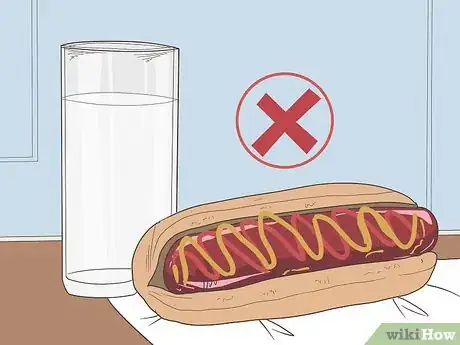
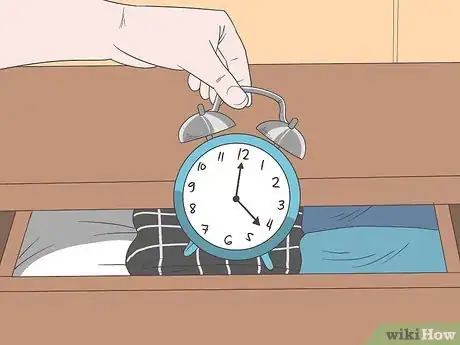

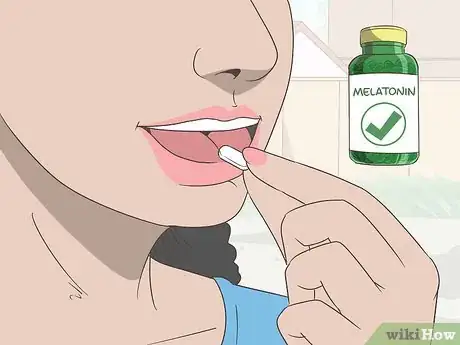

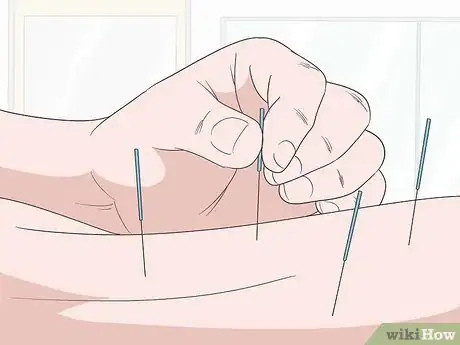
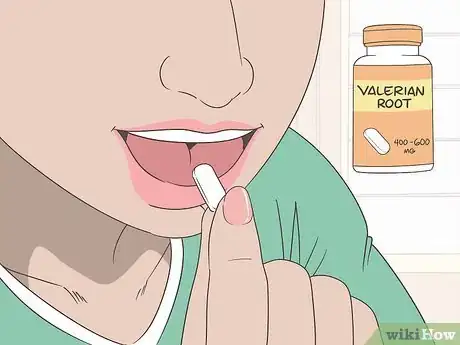
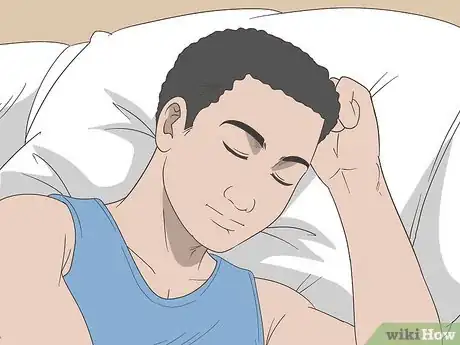



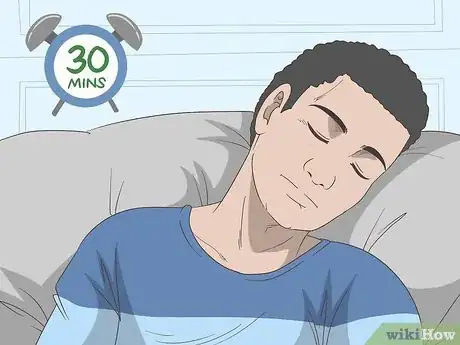
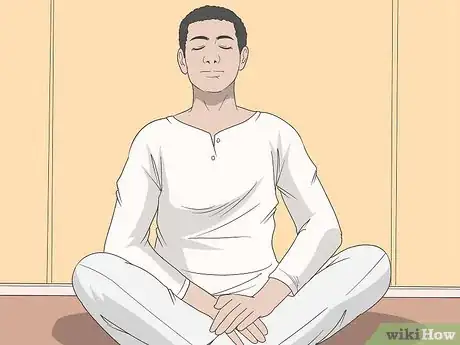

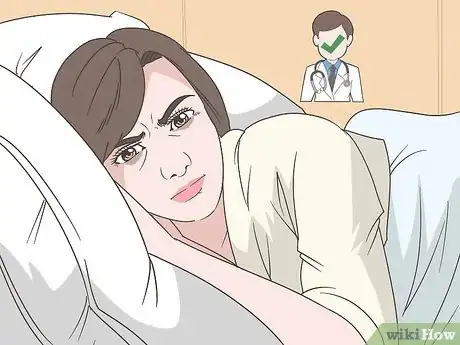


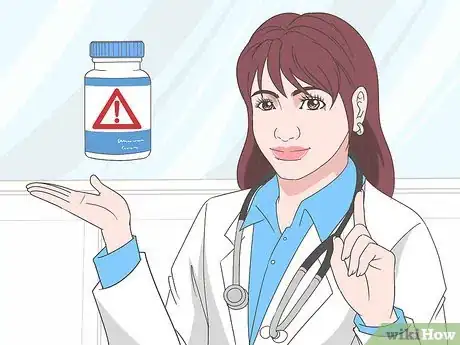





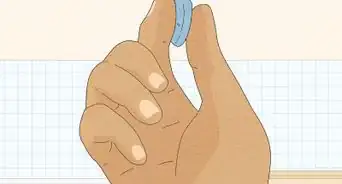




















































Medical Disclaimer
The content of this article is not intended to be a substitute for professional medical advice, examination, diagnosis, or treatment. You should always contact your doctor or other qualified healthcare professional before starting, changing, or stopping any kind of health treatment.
Read More...